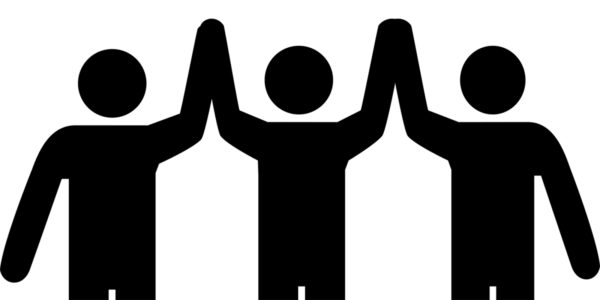These Helpful Tips Will Improve Your Incentive Program

Who has more influence on sales performance and business growth – your salespeople or your customers?
That’s a trick question: The most successful organizations are those that are able to create collaborative relationships between B2B customers and internal sales teams, as well as provide opportunities for mutual growth.
An incentive program can be a useful tool to achieve this synergy. After all, incentive programs are designed to motivate people to achieve specific goals – and the goals of sales personnel and customers aren’t dissimilar. Both groups want to feel engaged and connected to your brand, and to know their contributions are valued by your organization.
Incentivizing KPIs to Align Goals
KPIs, or key performance indicators, are the building blocks of an effective incentive program. These are the observable or measurable behaviors that rewards can be used to inspire and reinforce.
Problems arise when KPIs don’t result in win-win situations for both customers and salespeople. For instance, if you reward your team members only for closing sales, they are more likely to push add-on products that might not be relevant to the customer, or to prioritize chasing hot leads at the expense of client follow-up.
This type of behavior will damage the shared trust and collaborative environment between salespeople and customers that’s necessary for success in the current B2B marketplace.
Sales KPIs That Benefit Customers
In B2B sales, customer experience is becoming increasingly important. Today’s B2B buyers are less concerned with cost, features, or deliverables than they were in the past. While those factors still play a role, today’s buyers want to work with companies they can trust, who share their core values, and who create personalized value-adds for their companies. KPIs for your sales team should encourage the kind of responsiveness, expertise, and hands-on consultation B2B customers seek.
Rewarding salespeople for improving response times and following up with clients will increase their availability to your customers, which will improve customer satisfaction. Incentives can also be used to reward and recognize sales personnel for upholding company core values, which, in turn, will result in better, more consistent customer experiences.
Customer KPIs That Enable Your Salespeople to Provide Better Service
By the same token, the KPIs you use to incentivize your B2B customers should make life easier on your salespeople and set them up for success. For instance, rewarding customers for loyalty, order size, and frequency – or for buying specific products – will make it easier for your sales teams to achieve their sales performance goals.
Your B2B customer loyalty platform is an opportunity to create a digital interface where customers can interact with your brand, learn more about who you are and what you stand for, and receive additional communication that’s relevant to them. An omnichannel user experience, combined with the emotional impact of rewards, will make customers more receptive to positive interactions with your staff.
Additionally, you can incentivize customers to provide more complete marketing data on reward registration forms or on their sales invoice uploads. That data, as well as other user behavior insights collected from your loyalty program, can be integrated into your CRM. This will equip your sales personnel with more complete profiles of their customers, which will enable them to provide more effective, personalized service.
Retention Leads to Stronger Relationships
According to “How Millennials Want to Work and Live,” a 2016 study published by Gallup, millennials – the largest generation in the B2B workforce – are three times more likely to switch jobs than past generations. The reason? A lack of engagement.
“Guide to Customer Centricity: Analytics and Advice for B2B Leaders,” also published by Gallup in 2016, shows that retention prospects for B2B customers are equally bleak. More than 71 percent of B2B customers reported that they were disengaged, putting them at significant risk of leaving for a competitor.
If lack of engagement is the problem, for customers and salespeople alike, then an incentive program just might be the answer. By creating engagement, setting clear goals, and reducing turnover, relationships between customers and sales personnel have the opportunity to flourish, allowing them to share in each other’s growth.
Nichole Gunn is the VP of marketing and creative services at Extu, an Atlanta-based incentive company that specializes in helping B2B companies improve their channel sales, build customer loyalty, and motivate their sales teams.
Get our Enewsletter
Get the latest sales leadership insight, strategies, and best practices delivered weekly to your inbox.
Sign up NOW →